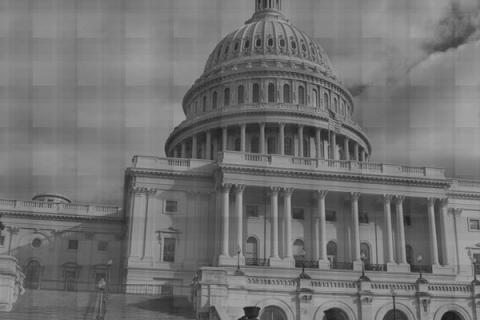Americans Elect is preparing to submit its California ballot access petition for the 2012 presidential election. The numbers indicate that if they can do it here, they can do it everywhere, and will likely obtain ballot acces in all 50 states.
As reported here at CAIVN nearly two months ago, a new political organization called Americans Elect has been engaged in a determined effort to obtain ballot access for the 2012 presidential election in all 50 states. At the time, the group had already obtained ballot access in a handful of states and had collected more than half of the 1,000,000+ signatures necessary to qualify for ballot access in California. Over this past weekend, New York Times columnist Thomas Friedman reported that the group is preparing to formally submit nearly 1.6 million signatures to the California Secretary of State in the coming days.
Why is this so significant?
The more than 1.5 million signatures necessary to obtain ballot access in California exceeds the total number of signatures the group will need to collect in order to obtain ballot access in the other 49 states, according to ballot access expert Richard Winger. With California out of the way, the group will already be halfway toward the total number of signatures required for ballot access throughout the Union.
As the group states on its website, it is “not a traditional third party.” Their “nominating process is open to any qualified candidate and any registered voter – no matter their party.” The process appears relatively simple, despite its obvious complexity. Registered voters can become a delegate of the organization by registering on its website and filling out a questionnaire regarding their political views. They will then be put in contact with similarly-minded delegates and asked to nominate an individual candidate whom they support or to get behind a candidate who has already been selected by others.
The myriad of potential candidates will be narrowed to six in an online vote scheduled for April 2012, and the final candidate will be selected in an online election two months later. Candidates must obviously be eligible for the office, and all will be vetted by an independent committee within the organization. The final candidate must choose a running mate who has a different partisan affiliation than him- or herself.
The fact that Americans Elect appears very likely to obtain ballot access in all 50 states raises an obvious question: who is funding it? In the New York Times column mentioned above, Thomas Friedman states that the group is “financed with some serious hedge-fund money.” In an article for The Daily Beast, John Avlon provides a bit more detail, reporting that the group’s founder, Peter Ackerman, and 50 other individuals have loaned the organization $20 million for a projected $30 million budget, which is to be repaid if and when smaller donors begin contributing to the organization. Avlon adds that the group does not accept money from PACs, political parties, or industry associations.
While commentators for mainstream, corporate news outlets such as Friedman and Avlon have been quietly following the development of this organization for months, with both coincidentally releasing their positive assessments of the group in recent days, others have been investigating it openly and with a critical eye. Chief among them is Jim Cook of Irregular Times.
After analyzing an incomplete list of donors to Americans Elect that was recently published by its campaign contribution collector, Cook concludes that the group has already violated its pledge to avoid accepting any “special interest money.” One donor, Jim Holbrooke, for instance, is the CEO of a marketing firm and the chairman of the Promotion Marketing Association, which is dedicated to pursuing the interests of the promotion marketing industry, reports Cook.
In a separate analysis, Cook takes a close look at American Elect’s corporate bylaws, which are not made freely available by the organization, but have been published by states where it has already qualified for ballot access. He finds that they do not provide for a grassroots political structure, but rather a four-tiered “political caste system” that runs from the board of directors, to officers and employees, and finally to members and delegates. One provision in the bylaws indicates that “the Board of Directors may act in a manner that overrules any other provision of the bylaws,” writes Cook, essentially providing them with the power to effectively overrule any act by the organization’s actual delegates.
If you’re involved with Americans Elect, let us know what your experience with the organization has been in the comments section.

